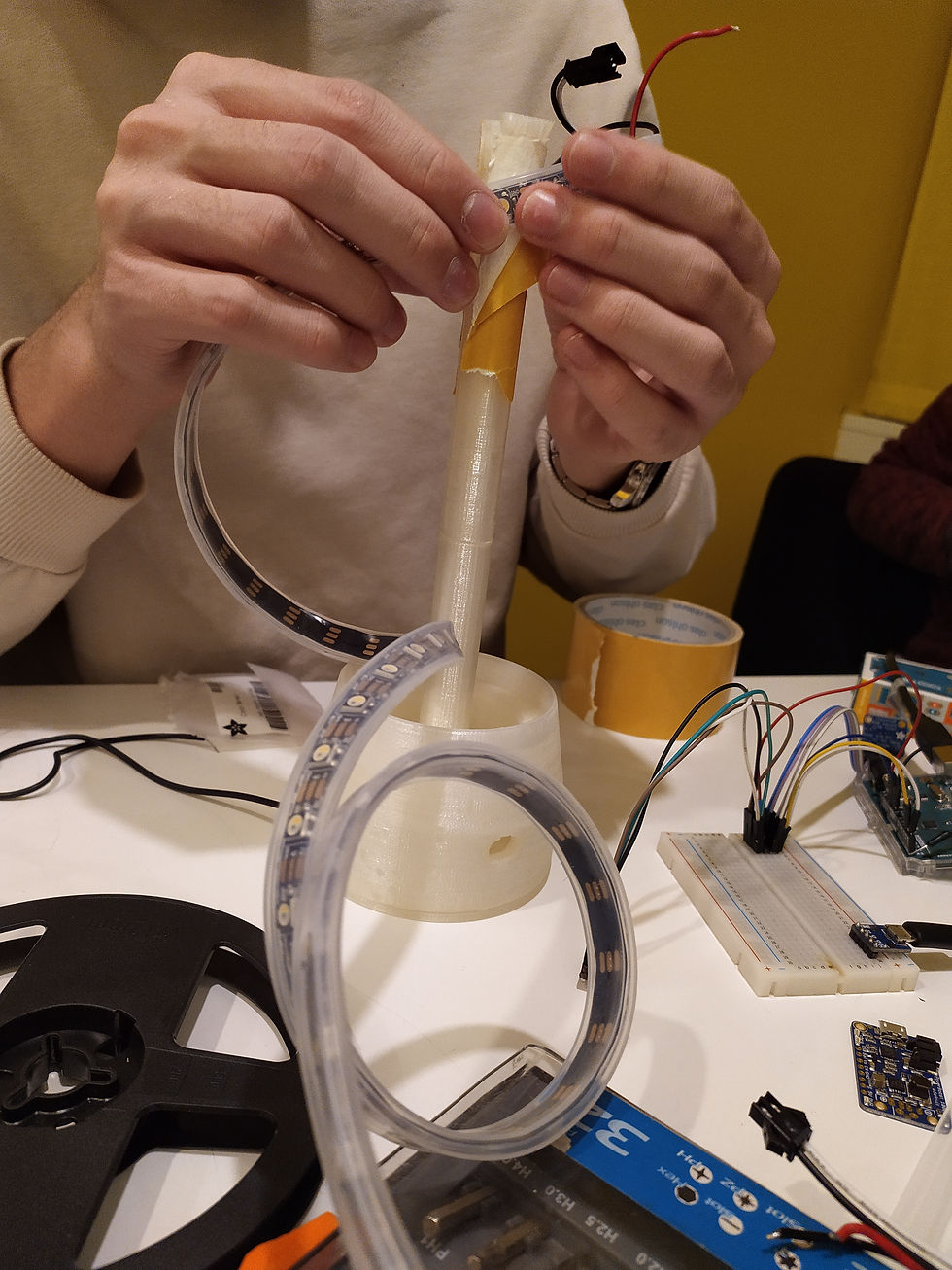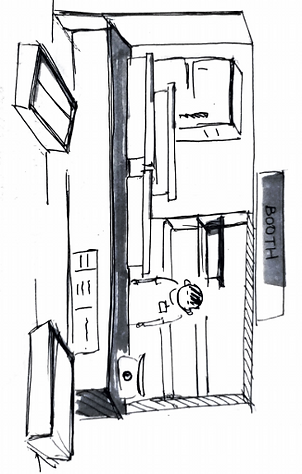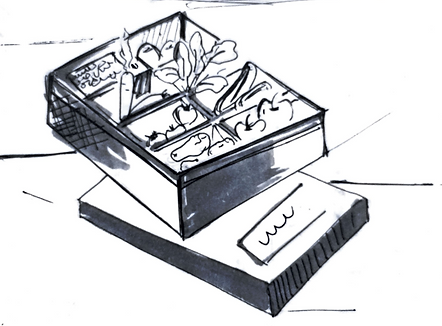1. Colourpicker Lamp
The project was done as a part of Master coursework for the Mechatronics in Products course.
A colour picker lamp was developed which acts just like a colour picker tool found in a lot of design software. A chargeable lamp which will change colours, and you won't mind it.


The product was developed from scratch, pressure sensor, RGB sensors were selected and Arduino nano was used and coded. The circuit diagram was constructed and connections fixed.
The body was 3D printed and a plastic bottle was used for getting dropper feel.




Team : Anubhuti Gupta, Hannes Engstrom, Jonathan Berg, Leo Sodergren, Sanketh Yeli.
Duration : December 2019
2. Eco-design : Making CASIO keyboard more sustainable

The aim of the project was to analyze the current product Casio SA-21, to find improvements and to evaluate the feasibility and the impact on the sustainability of the new product. By using different methods in order to analyze the life-cycle of the keyboard, a new product was introduced.
Golden principles were used to evaluate the current product and 5- layer approach was used to analyse the proposed solution.
Based on the GP value curve changes in four areas was proposed and evaluated. Final detailed proposals were made with regards to material.


ABS - ABS PC as it doesn't lose its properties on recycling.
Changing colour pf plastic parts from black to grey
Using recycled PS for the body

A product-service system was also proposed to give it a further push towards sustainability.
Team : Anubhuti Gupta, Kasturi Khanke, Lloyd Mseteka, Lucas Mehlem, Toni Busch
Duration: September 2019


3. Modularisation of the food processor
The project was done as a part of master coursework. We were Industrial Elements, an imaginary modularisation consultancy and we were to help OBH Nordica, a food processor manufacturer to extend their range of products using Modularisation.
We used a software PALMA for Quality function deployment, defining functions and establishing modules. Various product offerings were suggested for the different market segment and a supply chain with a product-service system was proposed.
Improved Sustainability through a Circular Product Service System while maintaining Operational Excellence
Customer segmentation

.jpg)
.jpg)
31Configurations
279 Variants
Team: Nicole Arthur Cabrera, Xin Jiang, Filip Mälberg, Anubhuti Gupta, John Peter Parlour, Johanna Nugin
4. Service Design to provide healthier food options to people

The project was done for the human-centred Design course from Design kit by IDEO.org. The brief was: How might we provide healthier food options for people in need

Understanding People
“Wahin khate hain jahan daal roti mile”
“1oo Rs zyada lag jaen par ghar se hi khana late hain”
“Zyadatar bahar hi khate hain, jahan aas pass
mile”
“Subah uthta hu to time nahi hota ki bana ke pack karun”


A healthy meal providing service in Gurugram, India was analysed. The wholesome meal at low cost and proximity drives people to eat here.
Grofers- Indian online grocery delivery service was used for analogous inspiration. The minimal time investment and easier access were their
HOW MIGHT WE ?
provide quicker access to healthier food options to Working single professionals?
provide healthier food options that can fit into the existing diverse lifestyles of working single professionals?
provide healthier food options that fit into peoples definition of a wholesome meal?


Our Proposal
-
Distributed in reusable plastic containers which are collected back
-
Different packs for different needs
○ 2 day pack
○ 4 day pack
○ 1 week pack -
Customised packs like : pack for the gym freak, the 9to5 er to cater
to specific needs.
-
Pop-up shops near bus stands to make service accessible.
-
Pop-up shops to fit into the model of people from different strata.
-
Available in small portions sufficient for an individual.
-
Pre-packed meals with calculated portions and nutritional requirements.
Convenience Saves time No decision fatigue Cost balanced by smart grouping
A healthy choice without conscious efforts
Working population lives away from their homes and completely ignores the need for nutritious meals in their lives and tend to eat whatever is easily available within their time constraints. They eat less than the recommended amounts of vegetables, fruits, whole-grains, dairy products. About 90%of them eat more sodium than is recommended for a healthy. Empty calories from added sugars and solid fats contribute to 40%of total daily calories. This tells us about the dire need to ensure that healthy eating choices are made by individuals living away from their homes. Our proposal works on the availability of raw food items and their quantities with a predetermined selection of nutrients to fit into different people's needs.
Team : Aditya Mathur, Anubhuti Gupta
